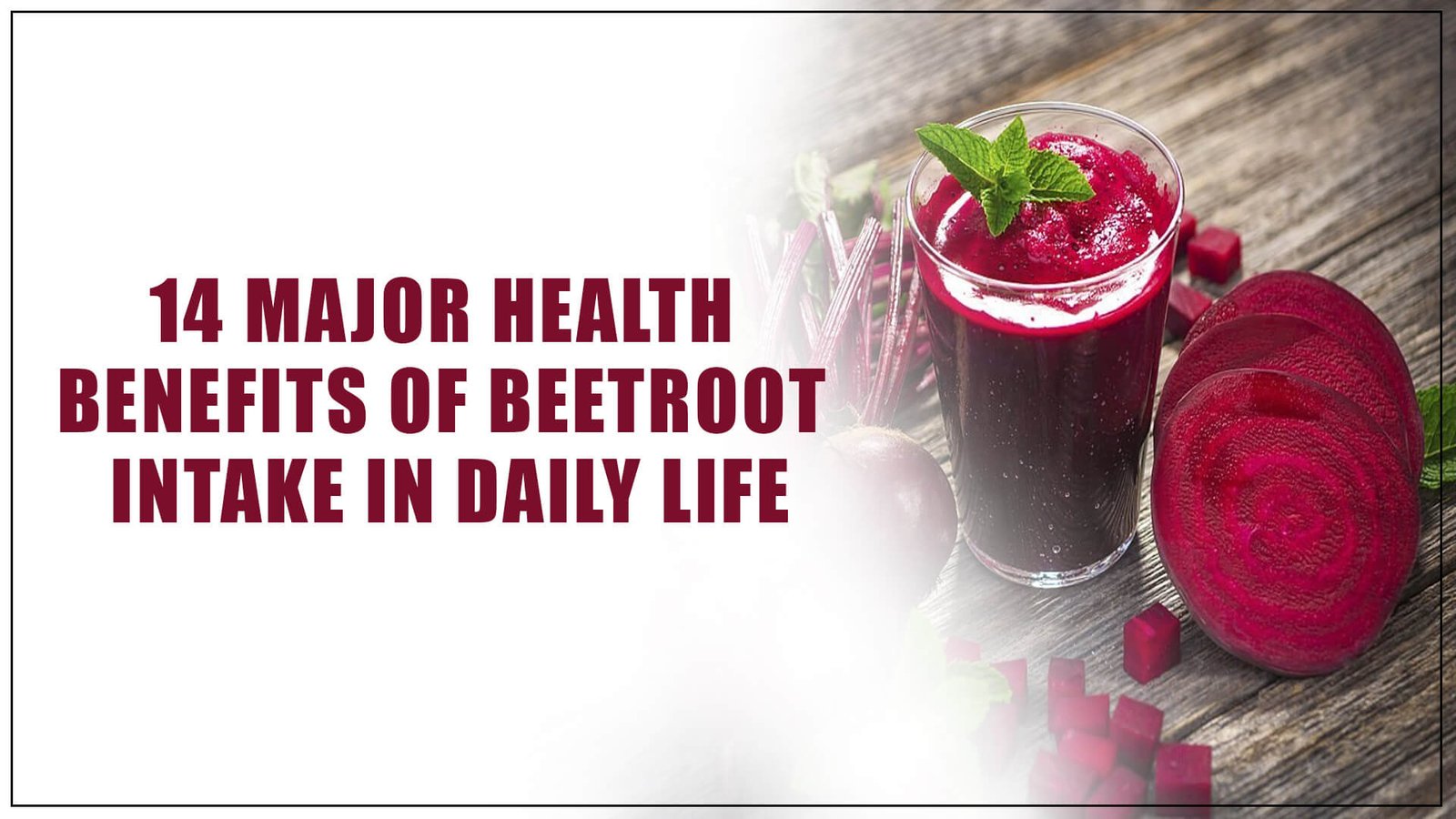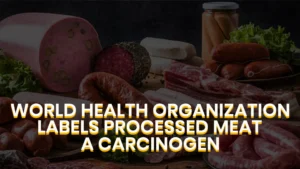A dark purple vegetable from the Chenopodiaceous family, Beetroot is also known as “vegetable” or “beet.” Beets are thought to have first become well-known in ancient Rome.
It was derived when the vegetable was widely utilized as an aphrodisiac to treat various illnesses, such as fever, skin issues, diarrhea, and wound healing. According to research, the benefits of Beetroot may go beyond what has been only folklore.
Interesting Facts about Benefits of Beetroot to Know:
Romans became the first people to cultivate Beetroot. While reddish-purple is the color that Beetroot is most often associated with. Many types are white, yellow, and even rainbow-colored. The only beet variety having betacyanin, a substance with exceptional cancer-fighting capabilities, is the red variety. However, other varieties make for colorful, interesting dishes.
The nutritional value of Beetroot may be decreased by overcooking. Studies have shown that high heat can harm phytonutrients like betalains.
Health Benefits of Using Beetroot:
Although raw beets are best served in salads because of their crunchy texture, the crimson vegetables add a super-delicious and extreme punch to soups and vegetable juices.
1. Nutritional value:
Vitamin C, B1, B2, B6, B5, and folate are among the many nutrients in beets, as are choline, manganese, magnesium, phosphorus, potassium, zinc, iron, copper, and selenium, in addition to a massive amount of fiber. Inadequate dietary protein?
Much more is still yet to come! Unique anti-inflammatory and antioxidant chemicals less often seen in other fruits and vegetables can be found in large amounts in Beetroot.
2. It Can Lower Your Blood Pressure:
Beet juice helps in blood pressure reduction. Our bodies turn nitrates from foods with a high nitrate content into nitric oxide, which helps to widen blood vessels and results in improved blood flow and decreased blood pressure. Therefore, the nitrates present in Beetroot naturally provide this health advantage.
3. It Constantly Fights With Inflammation:
Betanin is betanin, and violaxanthin is just a few of the special phytonutrients in Beetroot that have powerful anti-effects.
While these molecules are a positive sign under normal conditions, they increase chronic. They are unwanted diseases and cause bodily harm on different levels when they are present.
4. It Brings Several Heart Benefits:
Due to the nitrates in Beetroot, it is well known that this vegetable can reduce blood pressure, one of the numerous risk factors for cardiovascular disease. However, it also contains significant cardio-protective effects.
Prevent the formation of plaque: To prevent the plaque from forming on arterial walls, betacyanin, an antioxidant, provides Beetroot its purplish-red color. It minimizes the oxidation of LDL cholesterol along the walls of coronary arteries. Atherosclerosis, a disorder that can induce heart disease, can develop due to insufficient plaque formation.
Beetroot contains a lot of soluble fiber, which binds to cholesterol in the small intestine and assists in the removal of fatty acids and glycerol from the body.
5. It Constantly Fights With Cancer:
A potent phytonutrient in Beetroot, known as betacyanin, may slow the growth of many cancers.
FACT: According to a study, betacyanin helped people with breast and prostate cancer slow the growth of their tumors by 12.5%. SAM-e is utilized for typical cellular processes such as cell growth, repair, and division.
Additionally, betaine assists in the liver and kidneys’ conversion of the amino acid methionine into SAM-e.
The immune system is improved, and the body’s ability to resist disease is improved by the special anti-inflammatory and antioxidant substances in Beetroot, which help fight cancer.
6. The Beetroot Detoxifies Your Inner Body:
When cells attach toxic substances to other liquid nutrients in the body, they neutralize the poisons.
They make them water-soluble, and betalain pigments support the body’s Phase 2 detoxifying processes. Toxins can be dissolved in urine because of this process.
7. It Can Prevent The Anemia:
The high iron component in Beetroot makes it advantageous for those with low anemia caused by iron-deficiency anemia. Beetroot also includes vitamin C, which improves the body’s ability to absorb iron. Iron is required to be at optimal best for the production of hemoglobin and healthy red blood cells.
8. It Can Boost the Human Body Stamina and Gives Excessive Energy:
Beetroot’s nitrates help expand arteries, allowing more oxygen flow to different body organs and parts, including muscles. This enhances stamina and athletic performance.
FACT: According to a study, dietary nitrate supplements can increase tolerance during high-intensity exercise while lowering the oxygen cost of low-intensity exercise.
Less fatigue and more stamina result from improved muscle oxygenation. Therefore, the effective system of magnesium, which reduces muscle spasms, is found in Beetroot.
9. It Will Overcome the Causes of Diabetes:
Because Beetroot has a low glycaemic index, it helps to digest slowly and releases glucose into the blood. This maintains satiety while assisting in avoiding sudden blood sugar spikes. Beets also have a very low-calorie count and no fat, which is an advantage.
The antioxidant alpha-lipoic acid found in Beetroot also aids in lowering blood sugar levels and improving insulin sensitivity. However, the main factor causing oxidative stress and inflammation in the tissues and organs of diabetic patients is high blood sugar levels.
10. It Can Improve brain health:
According to one study, drinking beet juice can improve blood flow to the brain. The blood supply to specific areas of the brain decreases with age, resulting in the brain receiving less oxygen and cognitive diseases like dementia and memory loss.
Beetroot, which is high in nitrate, enhances blood flow to the frontal lobe’s white matter and protects it from adult brain diseases.
11. It Can Make Your Digestive System Healthy:
There are many ways that Beetroot helps the digestive system. Beetroot’s high fiber content helps the bowels and reduces constipation.
The betaine in beets stimulates the liver’s synthesis of bile, which is then excreted by the gall bladder through into the small intestine to aid in the breakdown and absorption of fats and fat-soluble vitamins.
Glutamate, an amino acid that serves to protect the mucosal lining of the stomach and small intestines, is prevalent in beets. These components might help in peptic ulcer prevention.
12. It Can Improve Bone Health and Overcome the Reasons for Osteoporosis:
Regular use of beetroot juice or raw vegetables can help keep bones strong and will stave off osteoporosis. Minerals including silica, manganese, magnesium, and copper that can be found in beetroot support and improve bone.
The creation of connective tissue in cartilage and bones is helped by vitamin C and manganese. At the same time, silica helps the body in using calcium much more effectively.
13. It Works As a Natural Aphrodisiac:
The mineral boron, prevalent in Beetroot, enhances the creation of human sex hormones, increases libido fertility, and improves sperm movement. Therefore, Beets’ strong nitrate content can also enhance the perineum’s blood flow.
14. It Reduces the risk of birth defects:
Because it provides a significant amount of folic acid, Beetroot is thought to be particularly useful for pregnant ladies. Folic acid is essential for the proper development of the nervous system.
The risk of neural tube defects like spina bifida, which are brought on by insufficient dietary folate absorption during early pregnancy, can be reduced by eating beets or drinking beet juice.
How Can You Store Beetroot in Your Home?
You can easily store Beetroot in your home. Fresh Beetroot has leaves that appear to be fresh. You need to avoid wrinkled or dull-colored beets and go for those that are firm and smooth.
Beetroot in smaller or medium sizes is tender. Beets should be maintained and washed in a plastic bag that is tightly tied around the vegetable. Beets should not be kept in their raw state since they will soften and lose their crunch when thawed. Cooking beets before freezing them will help preserve both the flavor and the texture.
In the fridge, you can keep fresh beets with their greens attached for up to three or four days. However, if greens have now been eliminated, the beets can be kept in the fridge for two to four weeks with no problem.
Routine Tips to Add Beetroot to Your Daily Life
- Apple, pineapple, orange, lemon, and ginger are delightful and refreshing additions to beetroot juice.
- Beetroot can be sliced or cut into cubes and added to your preferred salad.
- Make a roast beef-friendly, earthy puree that is vibrant and tasty.
- Brownies made with Beetroot and chocolate are healthful to satisfy your sweet need.
- Beets can be roasted or cooked, then topped with goat cheese, pumpkin, and sunflower seeds.
- Raw beets are excellent when sliced and sprinkled with just some lemon juice and chili powder.
Final Verdict:
Beetroot is really a titan among healthy foods, according to a number of recent researches. It has an amazing amount of vitamins, minerals, and potent antioxidants that are uncommon in other fruits and vegetables.
Many major diseases, including heart disease, cancer, high blood pressure, osteoporosis, anemia, and early cellular aging, are all ailments that Beetroot gives defense against.
Frequently Asked Questions (FAQs):
What is the Beetroot’s main advantage?
Beetroots are a fantastic source of fiber, folate (vitamin B9), manganese, sodium, iron, and vitamin C. They are also packed with important nutrients. Numerous health advantages, such as greater athletic performance, reduced blood pressure, and better blood flow. They have been linked to beets and beetroot juice.
What would happen if you ate Beetroot each day?
Overconsumption has risks, such as increased Kidney stone risk: Due to their high oxalate content, beets can cause kidney stones when used in excess. The urine may color pink or red when you have beeturia. The stool may also start to look different.
Do beets benefit the kidneys?
But, if you are sensitive to kidney stones made of oxalate, beets, beet greens, and beetroot powder may be problematic. They contain a lot of oxalates and may increase kidney stone production in those sensitive to them.





